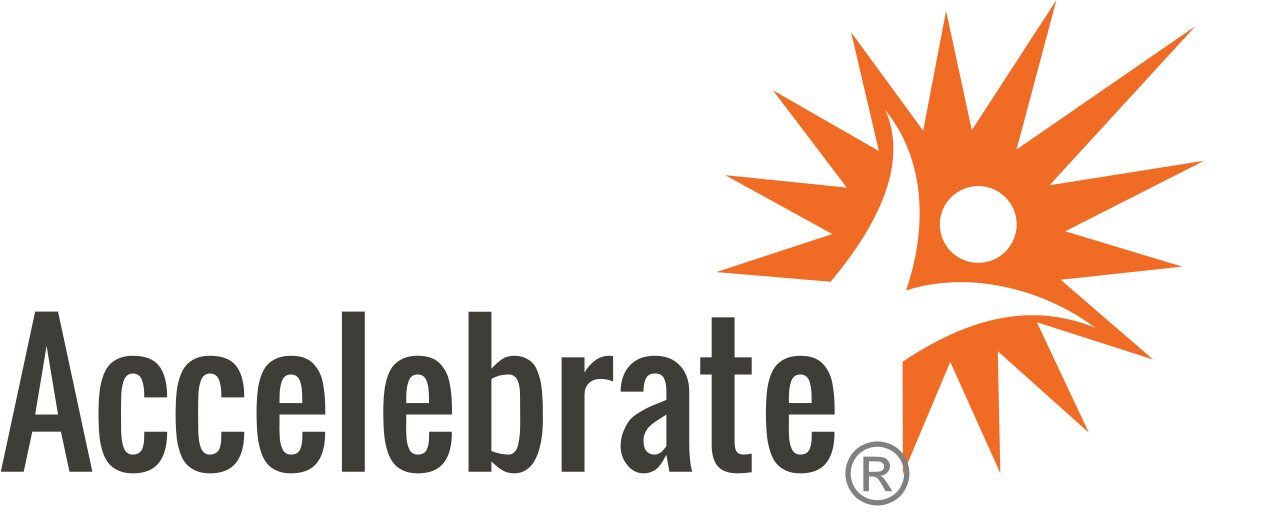Accelebrate's Introduction to R Programming training course teaches attendees how to use R programming to explore data from a variety of sources by building inferential models and generating charts, graphs, and other data representations.

R Programming Training Overview
Accelebrate's Introduction to R Programming training course teaches attendees how to use R programming to explore data from a variety of sources by building inferential models and generating charts, graphs, and other data representations.
Objectives
Master the use of the R and RStudio interactive environment
Expand R by installing R packages
Explore and understand how to use the R documentation
Read Structured Data into R from various sources
Understand the different data types in R
Understand the different data structures in R
Understand how to create and manipulate dates in R
Use the tidyverse collection of packages to manipulate dataframes
Write user-defined R functions
Use control statements
Write Loop constructs in R
Use the apply family of functions to iterate functions across data
Expand iteration and programming through the Purrr package
Reshape data from long to wide and back to support different analyses
Perform merge operations with R
Understand split-apply-combine (group-wise operations) in R
Identify and deal with missing data
Manipulate strings in R
Understand basic regular expressions in R
Understand base R graphics
Focus on GGplot2 graphics for R for generating charts
Use RMarkdown to programmatically generate reproducible reports
Use R for descriptive statistics
Use R for inferential statistics
Write multivariate models in R (general linear models)
Understand confounding and adjustment in multivariate models
Understand interaction in multivariate models
Predict/Score new data using models
Understand basic non-linear functions in models
Understand how to link data, statistical methods, and actionable questions
Prerequisites
Students should have knowledge of basic statistics (t-test, chi-square-test, regression) and know the difference between descriptive and inferential statistics. No programming experience is needed.
Providing IT training is what Steve has wanted to do since his late teens. In 1990, he had the good fortune to be placed in the first dormitory at Stanford University that had Internet connections in the dorm rooms. Steve's idea of a good time in college was teaching other students how to use email, FTP, and even Gopher (a precursor to the World Wide Web), as well as putting the University's Berlin, Germany campus online during his time living there.
After graduation, Steve worked for a year at a software company before joining an IT training firm in Washington, DC as its second employee in 1995. In the following years, he progressed to Vice President and then President of the firm, which grew to 7 US locations before the bursting of the Dotcom Bubble and 9/11 sharply reversed its fortunes.
In 2002, Steve founded Accelebrate with one laptop and himself as the sole instructor. In the following 20 years, Accelebrate has grown to consistently deliver more than 1,000 days/year of private training for clients, with classes delivered in-person and online for attendees from every US state, every Canadian province, and more than 30 countries.
At the end of 2022, Accelebrate joined Web Age Solutions and the Axcel family of education companies to drive the next chapter in its growth.
At Accelebrate, we are:
Inclusive
In a world of constant technological, business, and societal change, Accelebrate intentionally builds engagement and opportunity for its clients, employees, and business partners worldwide.
We promote ongoing learning and openness, celebrate diverse people and points of view, strive for equity in all our relationships, and include everyone in the pursuit of knowledge and growth.
Respectful
Accelebrate respects our clients' training needs and carefully adapts classes to meet them.
We listen carefully to the true needs of our clients and make recommendations in their best interests.
We treat all people (clients, employees, and business partners) with respect, regardless of differences.
Our respect for others makes us receptive to feedback and ensures we continuously improve.
In interactions with clients, instructors, and each other, we convey our concern and interest in the other person.
Rigorous
We strive to be the best training firm our clients hire in terms of instructional quality, flexibility, ease of logistics, attention to detail, and timeliness of communication.
We strive to be the best training firm for which our instructors work while simultaneously holding them to high standards for how they teach and treat our clients and staff.
Responsive
We feel a sense of urgency on any matters related to our clients.
We own problems, resolve them in a timely manner, and make commitments with care.
© 2025 coursetakers.com All Rights Reserved. Terms and Conditions of use | Privacy Policy